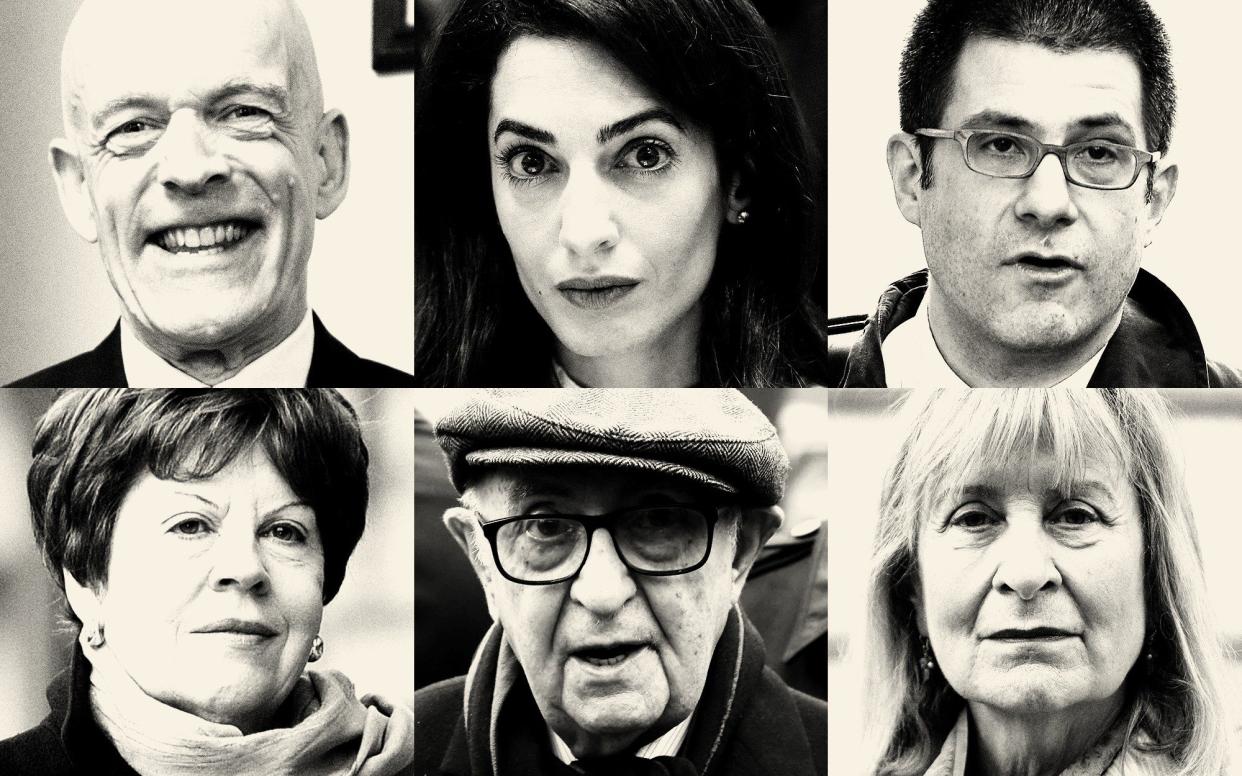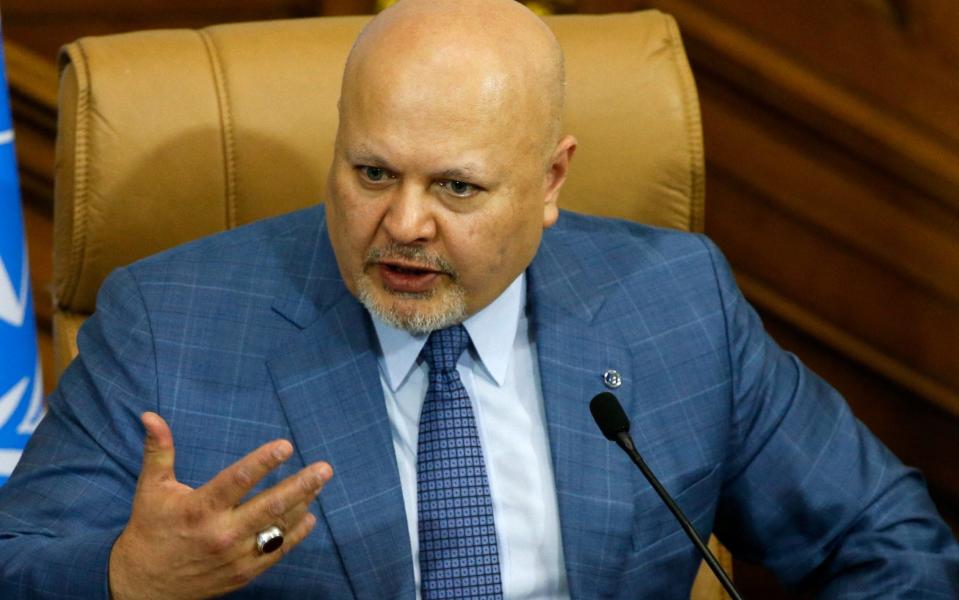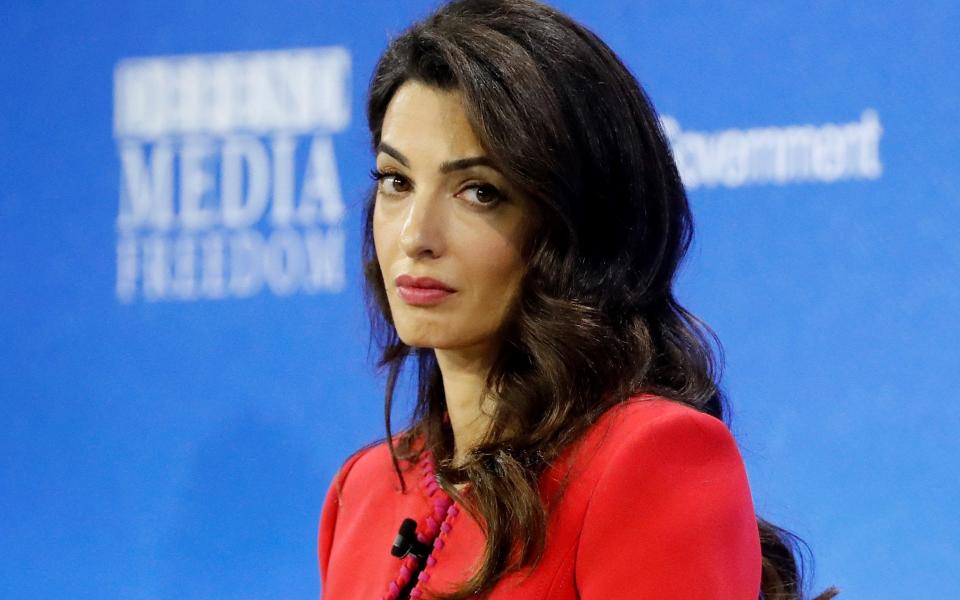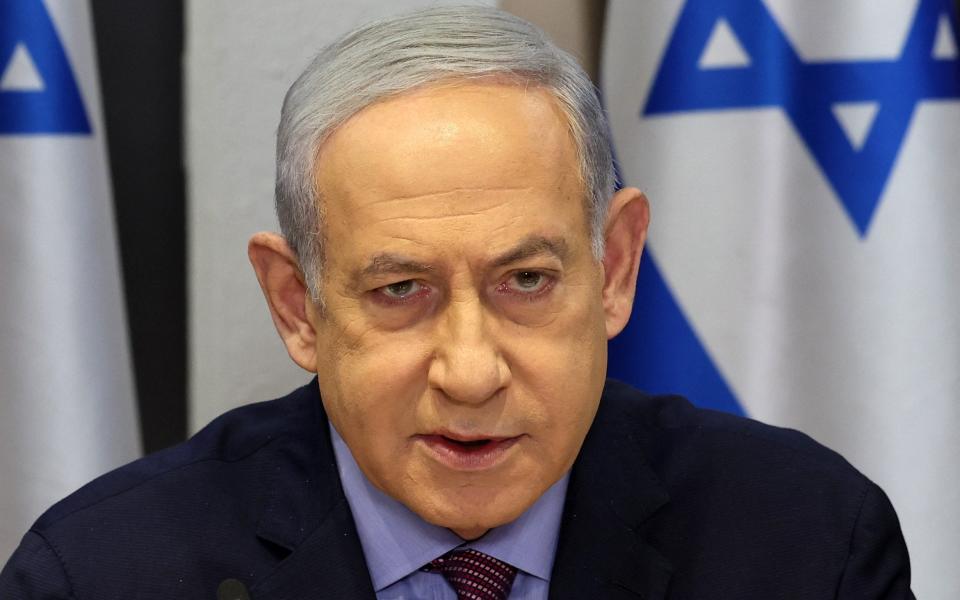How six human rights lawyers dragged the International Criminal Court into a diplomatic nightmare

The International Criminal Court was founded on the notions of impartiality and independence.
Karim Khan, its chief prosecutor, might therefore have been expected to move particularly cautiously in appointing a “panel of experts” as he weighed what action to take against Hamas and Israel over the October 7 attacks and Israel’s retaliatory bombing of Gaza. His subsequent decision to pursue arrest warrants for Israeli Prime Minister Benjamin Netanyahu and defence minister Yoav Gallant, as well as Hamas leaders, has proved explosive.
The move has attracted a barrage of disapproval led by Joe Biden and pressing questions about the court’s processes and future, triggered in part by concerns over whether the experts Khan called on were truly impartial.
Those concerns may be given succour by the revelation that several members of the panel, which is populated by a gaggle of British human rights lawyers including Amal Clooney, have publicly spoken out against Israel in the past. This, claim the court’s critics, indicates a ‘verdict first’ way of working, in which at least some of those involved in the process were already convinced that Israel has been guilty of war crimes.
Among those whose remarks have raised eyebrows is Baroness Helena Kennedy KC, a founding member of Doughty Street Chambers renowned for her expertise in criminal law.

Within weeks of Hamas’ murderous onslaught last October, Kennedy warned Israel was overstepping in its response, accusing it of breaching international law by cutting off critical water supplies to Gaza as part of its “complete siege” of the coastal enclave.“Water is a basic human right and its denial violates international law. It is a war crime,” she told Prospect Magazine on October 24. “Israel has a right to self-defence. But it has to be proportionate and in accordance with international law,” Kennedy added, defending her stance as neither pro-Israeli or pro-Palestinian, but instead “pro-human rights.”
Shortly afterwards, another member of Khan’s advisory panel spoke out against Israel’s offensive and called for an immediate ceasefire. In an open letter published on November 18, Danny Friedman KC accused the Israel Defence Forces (IDF) of having run roughshod over the laws of war.
“Israel’s response to the attack on its territory has involved catastrophic mass fatality and untold human suffering of Palestinians – not only as a result of aerial and ground bombardment, but through, among other features, cessation of basic sustenance and amenities, destruction of medical facilities, and forced movement of populations within the blockaded geography of the Gaza strip,” he said. “These are also grave war crimes. They must be characterised as such notwithstanding any continuing other crimes upon Israelis, foremost of which is the continuing and agonising incommunicado detention of Israeli hostages.”
Friedman, of Matrix Chambers, added: “I make the case for a ceasefire not because I am against Israel. I am pro-Israel, but I am also pro-Palestine.” The pair’s remarks came months before the International Court Of Justice ruled in January that there was not enough evidence to substantiate such weighty charges, stopping short of ordering Israel to halt its offensive but demanding its leaders act to prevent genocide unfolding in Gaza.
While other members of Khan’s panel such as American-Israeli Judge Theodor Meron CMG and Clooney have not been similarly outspoken on the war, the ICC’s critics have highlighted their past positions on issues concerning Israel as problematic when considered against the court’s clearly stated aim of impartiality.
Meron, 94, has for years disputed the legality of Israeli settlements in the occupied West Bank. A Holocaust survivor, he was born in Poland before moving to what was then known as British Mandate Palestine aged 15 in 1945. Some 20 years later, while serving as a legal adviser to the Israeli Ministry of Foreign Affairs in 1967, Meron counselled against allowing the construction of settlements in territories taken by Israel during the Six-Day War. He has remained publicly opposed to settlement building since.
Clooney, meanwhile, is known to have in 2014 turned down a UN offer to investigate possible war crimes by Israel in Gaza, saying she was too busy to take on the work. She did, however, issue a statement which appeared to prejudge the investigation by calling for “accountability for crimes that have been committed”.

The incidents have led observers to question Khan’s decision-making in calling on the experts he did. One senior international lawyer said: “Khan said this was an impartial, independent and objective panel set up to review the evidence. So why did he include in the panel at least two people who had already expressed a very clear view on the issues to which the evidence relates?
“Since when do independent and impartial experts assisting a judicial authority do their own ‘comms’ – with op-eds and press releases? Kennedy was giving interviews about Gaza while sitting on this panel.
“The problem is that campaigners are not the right people to do impartial, independent and objective reviews of potentially criminal evidence. Some of these people should have never been asked and, if asked, they should have declined. The whole thing is doing huge damage to the ICC.”
The Telegraph contacted the panel, which was supported by two academic advisers, but it refused to comment.
However, in an op-ed published in the Financial Times on Monday, the panel’s members, which also include Sir Adrian Fulford PC, a former ICC judge, and Elizabeth Wilmshurst CMG KC, who resigned from the Foreign Office on the eve of the 2003 invasion of Iraq, defended their credentials and findings.
“As lawyers specialised in international law hailing from diverse personal backgrounds, we felt we had a duty to accept the invitation to provide an impartial and independent legal opinion based on evidence,” they said.
“We were selected because of our expertise in public international law, international human rights law, international humanitarian law and international criminal law, and, in the case of two of us, experience as former judges of international criminal tribunals,” they added.
“Our common goal is advancing accountability and we have reached our conclusions based on an assessment of the warrant applications against an objective legal standard. We have reached these conclusions unanimously. And we believe it is important to publish them given the extent to which discourse has been politicised, disinformation has been rife and international media has been denied access to the front lines.”
Khan himself said on Monday that he had applied for arrest warrants for Netanyahu and Gallant for crimes including “wilful killing”, “extermination and/or murder”, and “starvation” during the war in Gaza. He accused Israel of having committed “crimes against humanity”, and said it had carried out “a widespread and systematic attack against the Palestinian civilian population”.

Khan also said the leaders of Hamas, including Qatar-based Ismail Haniyeh and Yahya Sinwar, its Gaza chief, “bear criminal responsibility” for atrocities committed by the terror group during its deadly October 7 rampage, including the taking of hostages, rape and torture.“International law and the laws of armed conflict apply to all,” he said, adding “no one can act with impunity.”
A panel of judges at the ICC now will consider whether to issue the arrest warrants he has requested. While the US and Israel are not signatories to the court’s Rome Statute, many Western nations are, meaning the outcome could yet have profound implications for Netanyahu and Gallant by effectively rendering them unable to visit allies without risking arrest.
The backlash from several such countries has been fierce, with Biden condemning Khan’s move as “outrageous”, Prime Minister Rishi Sunak branding it “deeply unhelpful” and Germany’s foreign ministry warning of a “false impression of equivalence” created by the simultaneous application for arrest warrants for Hamas leaders and Israeli officials.“Let me be clear: whatever this prosecutor might imply, there is no equivalence – none – between Israel and Hamas. We will always stand with Israel against threats to its security,” Biden said.
Brett D. Schaefer, a senior research fellow in international regulatory affairs at the Margaret Thatcher Center for Freedom at The Heritage Foundation, said the furore was a sign of a failing court.
“The ICC seems to be better at making a splash than actually making demonstrable achievements,” he told The Telegraph. “For instance, it made a splash about announcing a warrant against [Russian President Vladimir] Putin. But Putin does not seem to be deterred. The court does not seem to be all that instrumental or influential in dissuading countries like China from committing crimes against humanity, genocide, or war crimes. And I think that there is now ample reason to question whether the court is actually fit for purpose.”
“It hasn’t proven to be very effective, but it has been very expensive … It’s [now] trying to justify its mandate and justify its existence.”

 Yahoo News
Yahoo News 
